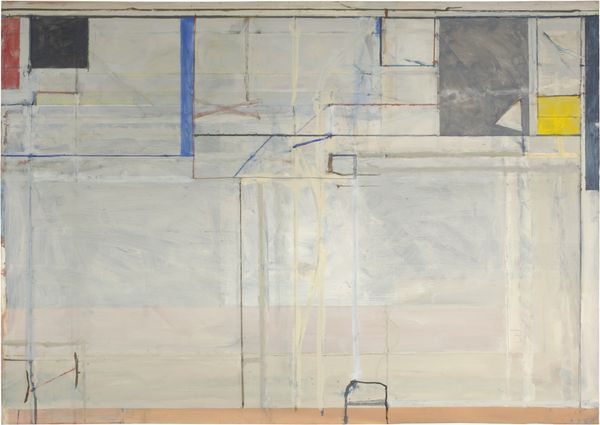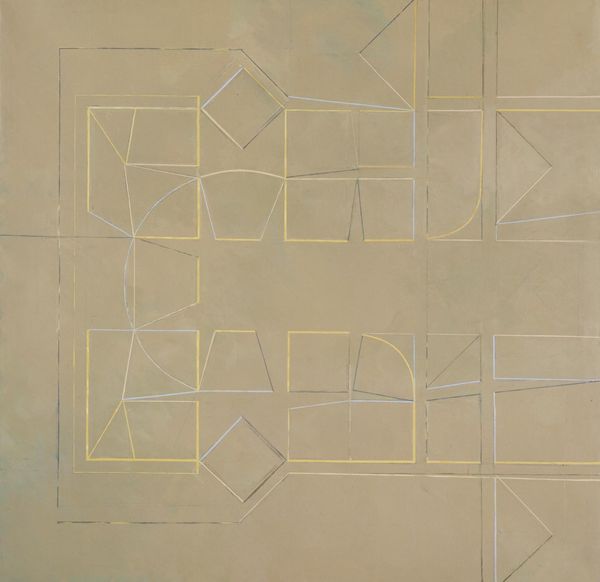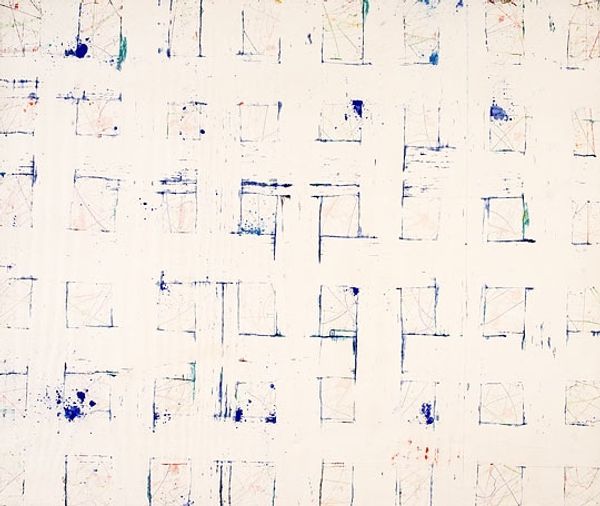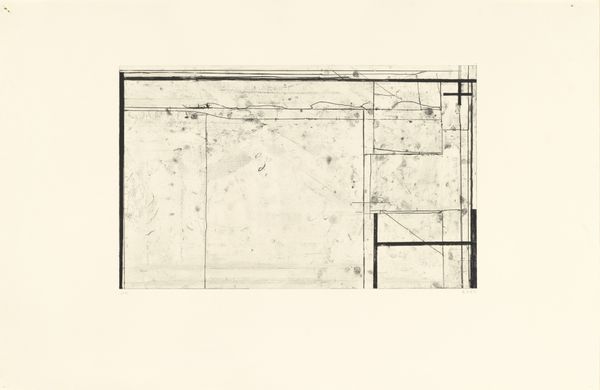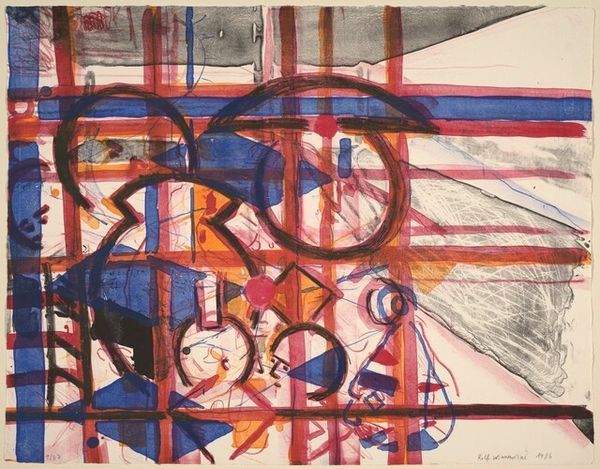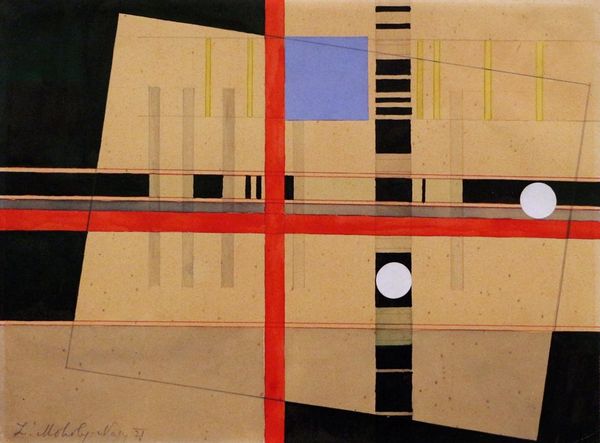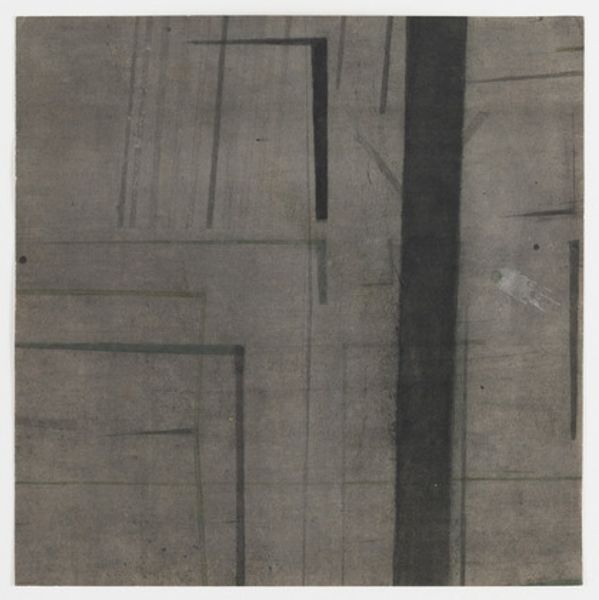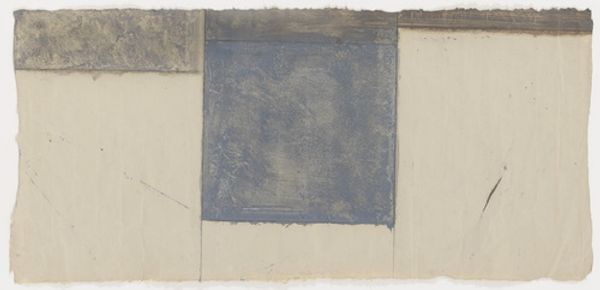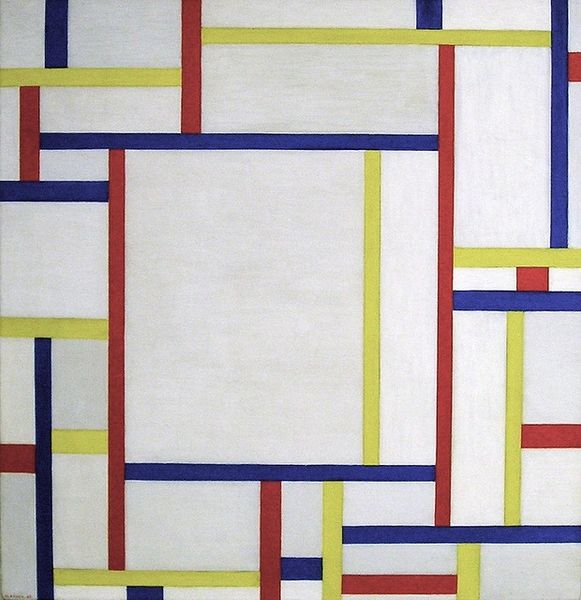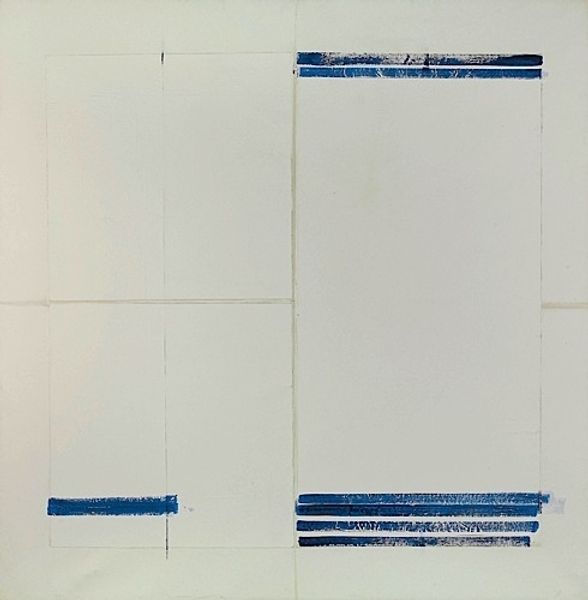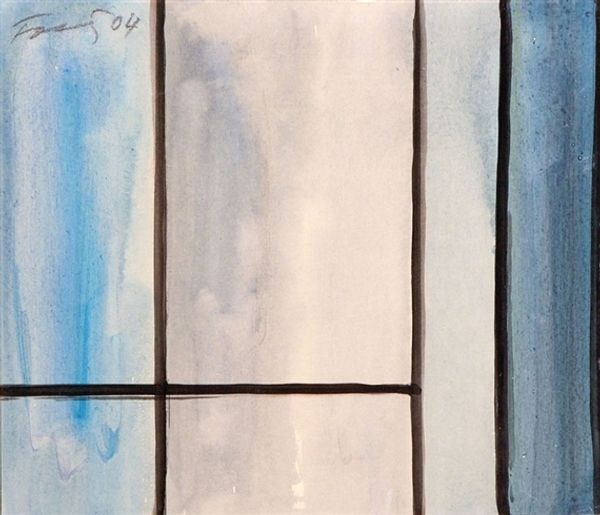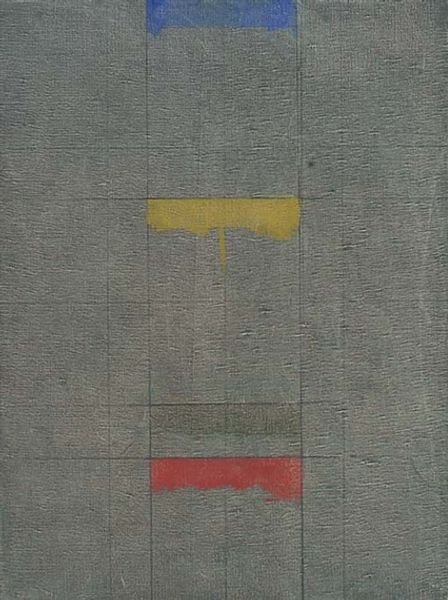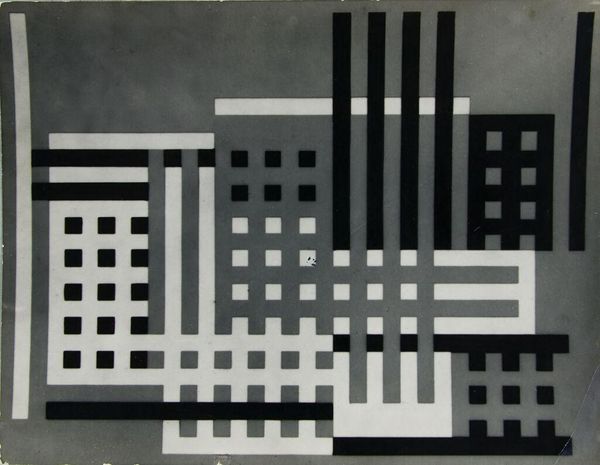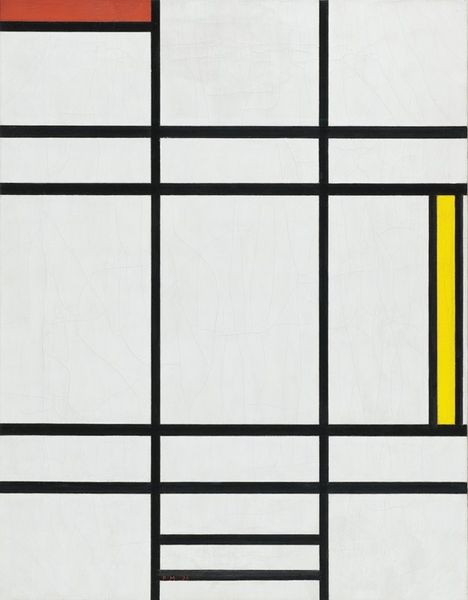
drawing, mixed-media, paper, pencil
#
drawing
#
cubism
#
neo-plasticism
#
mixed-media
#
paper
#
abstract
#
pencil
#
geometric-abstraction
#
mixed medium
#
modernism
Copyright: Public Domain: Artvee
This is Piet Mondrian's "Study for a Composition," a work rendered with charcoal and paint. The piece immediately strikes one with its grid structure, a hallmark of Mondrian's quest for pure abstraction. Notice how the stark, black lines intersect, creating a series of rectangles, some filled with primary colors—red, blue, and yellow. These colors don't just sit within their boundaries; they vibrate, pushing against the confines of the grid. This interplay between line and color destabilizes the traditional figure-ground relationship. Mondrian's approach is not merely aesthetic; it's a visual philosophy. He sought to distill reality to its most fundamental components. By reducing forms to basic geometric shapes and colors, Mondrian aimed to reveal an underlying universal structure. It's a semiotic reduction, where each element is a signifier in a larger, abstract language. Observe how the apparent simplicity challenges fixed notions of representation. Mondrian invites us to see beyond the surface, to engage with a visual syntax that speaks to the essence of form itself.
Comments
No comments
Be the first to comment and join the conversation on the ultimate creative platform.
